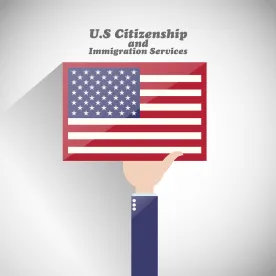Advocacy groups have filed suits challenging the USCIS fee increases scheduled to take effect on October 2, 2020.
The fee increases are not equal across the board. Certain types of business immigration petitions have been targeted for large percentage fee increases: 51% for TNs and E visas, 75% for L petitions, and 53% for O petitions. Further, the increase in naturalization fees and the addition of a nonwaivable asylum fee has sparked opposition. Naturalization fees are going from $640 to $1,170 – an 83% increase. The new asylum application fee will be $50. The United States has never before charged a fee for asylum and will join only three other countries that charge fees for this benefit: Iran, Fiji, and Australia.
The challenges to the fee increases are as follows:
-
A Massachusetts nonprofit was the first to file to prevent USCIS from raising the naturalization fee, contending the fee adds a non-statutory requirement for naturalization — an illegal “wealth test.”
-
In the Northern District of California, Immigrant Legal Resource Center et al. v. Wolf challenges all of the fee increases on the grounds that the fees were proposed and issued under those (Kevin McAleenan and Chad Wolf) not properly appointed to their positions, and therefore, the new rule is unlawful. That suit also contends the naturalization fee increase and asylum fee harm the most “vulnerable” in our society.
-
In the third suit, in the United States District Court for the District of Columbia, Northwest Immigrant Rights Project et al. v. Department of Homeland Security et al., an attorney representing the advocacy group plaintiffs notes, “DHS’s rule is cruel and unlawful. DHS should not use its budget as an excuse to price immigrants out of the opportunity to receive asylum and citizenship ….” The suit challenges not only the fee increases, but also USCIS’ implementation of changes to the fee waiver rules that makes it much more onerous for applicants to obtain fee waivers.
The challenges to the fee increases are reminiscent of the challenges to the Administration’s proposed changes to the Public Charge Rule. Like the fee increases, the new Public Charge Rule was seen as a “wealth test” and “backdoor and unlawful approach in the interest of changing the face of immigrants allowed into this country ….”
USCIS is expected to issue new forms by October 2, 2020, to accompany the new fees.



 />i
/>i

